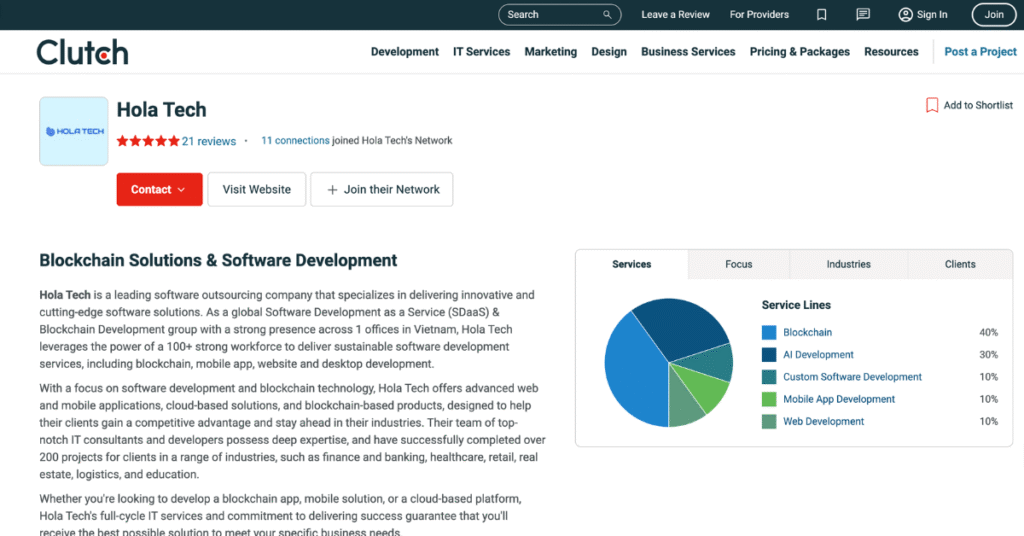- Tom
- IT, outsourcing, Technology
- 0 Comments
- 13717 Views
Choosing the right outsourcing partner: Your guide to growth
1/ Key takeaways
Outsourcing is a strategic move for growth, offering cost savings and access to specialized expertise, but success depends on clearly defining the scope of work and choosing a partner that aligns with your specific goals and quality standards. By focusing internal efforts on core competencies and delegating non-core, specialized tasks to a reputable, flexible partner, businesses can gain a crucial competitive advantage.
2/ How to choose the right outsourcing partner
2.1. The benefits of outsourcing
Significant cost savings and enhanced efficiency
Outsourcing is a powerful strategy for cutting business costs and driving efficiency. 76% of leaders outsource to reduce expenses. Outsourcing firms achieve economies of scale and operational efficiencies difficult to match internally, enabling them to offer high-quality services at a lower price. This often translates to an average saving of 15% compared to in-house operations.
Access to specialized expertise, talent, and technology
You don’t have to build it to have it. Over 90% of business leaders cite access to specialized expertise as a key motivator. Outsourcing vendors instantly provide highly specialized knowledge, vast experience, and cutting-edge tools that would be prohibitively expensive or time-consuming to cultivate internally.
Flexibility, scalability, and focus on core competencies
Outsourcing injects essential agility into your operation:
– Flexibility and scalability: It allows you to quickly scale teams up or down for temporary or project-based work (e.g., product launches), avoiding the financial burden of permanent hiring.
– Focus on core functions: By delegating non-core tasks, you enable internal teams to concentrate on innovation and growth – the functions that truly improve efficiency and productivity
For more information, you can refer to the following article: Top 10+ IT & software outsourcing companies in Vietnam for offshore services

2.2. Best practices for choosing the right outsourcing partner
Define a clear scope of work
Before contacting any partner, you must clearly understand your needs. Write a comprehensive scope-of-work (SOW) document that is tightly aligned with your business goals.
Many businesses fail by expecting outsourced resources to innately understand their goals. This is unfair. Outsourcing is a tool for a specific objective, not a “plug-and-play” solution.
Be specific. Instead of vague requests like “create a mobile app customers will love,” provide detailed requirements on features, UX needs, supported platforms, audience, and overall goals.
Evaluate the expertise of potential partners
Your partner’s capabilities must align perfectly with your project. When evaluating any potential outsourcing partner, look closely at these categories:
– Technical expertise and Skill sets
– Access to the latest technology
– Experience in solving complex challenges
– Passion for your project
Consider their market reputation
The quality of your partner’s performance and communication will directly impact your business’s reputation. You need to know you’re working with a highly respected resource.
– Thoroughly check all professional job references.
– Research online reviews to learn about their history and reputation.
– Utilize B2B rating and review sites like Clutch and GoodFirms to find reputable partners in various fields.

Communicate clearly about your budget
Budget planning is foundational. Determine how much you are willing to invest and communicate this clearly with the provider you select.
Remember that highly skilled resources can be costly. While outsourcing is often about saving money, if you expect superior services, you must understand they often come with a higher price tag. Finalize your budget before approaching a partner, but remain open to discussing cost adjustments based on the expertise or additional value they can bring. Transparent communication sets mutual expectations and prevents misunderstandings later on.
Protect your data and intellectual property
When sharing confidential data or proprietary intellectual property, your business is at risk of a data breach or IP theft if not managed correctly.
Protect your business by:
– Requiring your outsourcing partner to sign a Non-Disclosure Agreement (NDA).
– Ensuring the partner has robust network and security protocols in place to protect your business from cybercrime.
Use agile methodologies in your development process
In today’s fast-paced market, accommodating customers’ ever-changing requirements is key to survival. Agile methodologies create a highly collaborative environment that delivers quick, adaptable results. To be a leader in your industry, hire a vendor who implements Agile so they can effectively pivot to your customers’ evolving needs.
Choose a flexible domestic or international partner
Your selected vendor must be flexible enough to handle urgent issues promptly or pivot a project to accommodate changing needs. This is especially important when working with an international partner in a different time zone.
Choosing between international and domestic partners is a matter of priorities. International teams can offer significant cost savings but may require more effort in syncing schedules. Domestic partners often simplify communication but may stretch your budget. The right partner is the one who can meet your needs at a price you can afford.
3/ Hola Tech’s pov:
From Hola Tech’s perspective, the decision to outsource is rooted in a strategic assessment of whether a function is a core competency driving competitive advantage or a non-core function requiring specialized, scalable support. Startups, SMBs, and hyper-growth companies should outsource to conserve capital and focus on innovation. They are the ideal candidates for delegating non-core, high-cost functions like IT help desk, payroll, routine software testing, and high-volume customer support. Conversely, no company should ever outsource tasks related to their proprietary Product Strategy, Core Architectural Design, or High-Level Strategic Decision-Making. These are the unique elements that define your business and must remain in-house to protect intellectual property and maintain market control.
The most effective approach for the majority of tech companies is a Hybrid Model. This strategy dictates keeping a lean, high-impact internal team focused solely on the “secret sauce”: engineering the core product, defining the business roadmap, and managing key customer relationships. All non-core operational elements like specialized cybersecurity monitoring, cloud infrastructure maintenance, or temporary app development sprints should be delegated to external experts. This allows the internal team to avoid distraction and concentrate fully on growth.
Ultimately, the outsourcing decision is less about the type of company and more about the type of task. By strategically outsourcing repeatable, specialized, or cost-heavy operational tasks, companies gain immediate access to expertise and efficiency without incurring the fixed costs and recruitment overhead of building those departments internally. This selective delegation provides the flexibility and scalability needed to meet market demands while ensuring the company’s unique value proposition remains under strict internal control.
Want to stay ahead of the curve in the world of decentralized technology and AI? Check out Hola Tech blog for more exciting technology news and useful information!














